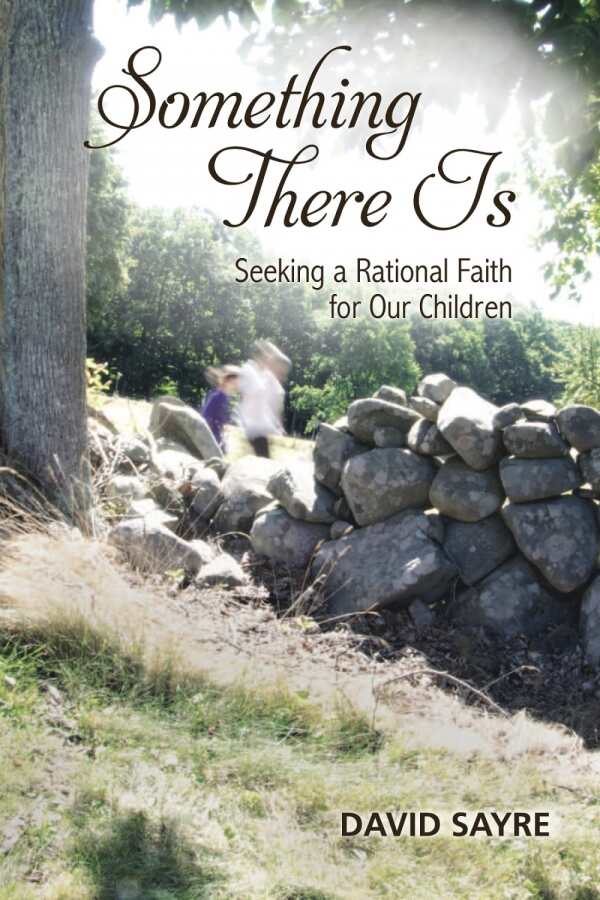
Something There Is
Seeking a Rational Faith for Our Children
In his brief, thoughtful essays in Something There Is, David Sayre, an engineer who has led advances in communication and energy technologies for thirty years, speaks about the encounters he has had with people all over the world who are longing for a rational faith. Intended to be letters to his children, and written from diverse and often conflicted locations, Sayre’s poetic musings express the highly relatable need to believe in something greater than ourselves, and to do so without having to set our rational minds on the back burner. Despite the fear that “advancing knowledge threatens what we hold sacred, that solving mysteries reduces the realm of beauty, that faith and love cannot be rational, that our sense of the holy may be obsolescent in a world of technology,” the author finds the opposite to be true: “The science that enshrines a commitment to truth reveals the deepest beauties, finding order in places that were unknown or thought to be chaotic,” he writes. “Many who have devoted their lives to science testify to their sense of awe at the great beauty that lies at the heart of nature. … The experiences of order, of symmetry, of finding deep and hidden relationships, of consistent metaphors and analogies—all are deeply scientific, as well as beautiful.”
Sayre expresses confidence that the discoveries of science are consistent with the central teachings of the world’s great religions, as well as with those of the best in art and literature. He eloquently traces the evolution of societies from the primitive to the mature: “A primitive society forms exclusive, secret and defensive groups; a mature civilization seeks an inclusive community,” he writes. “A primitive society hides in shelter from a feared environment, and exploits what it can; a mature civilization seeks to understand and preserve its environment.”
Robert Frost’s idea—“something there is that does not love a wall”—is echoing throughout a universe that is, above all, about connection, and in which the very force of gravity may be seen as a metaphor for unconditional love.
Reviewed by
Kristine Morris
Disclosure: This article is not an endorsement, but a review. The publisher of this book provided free copies of the book to have their book reviewed by a professional reviewer. No fee was paid by the publisher for this review. Foreword Reviews only recommends books that we love. Foreword Magazine, Inc. is disclosing this in accordance with the Federal Trade Commission’s 16 CFR, Part 255.
